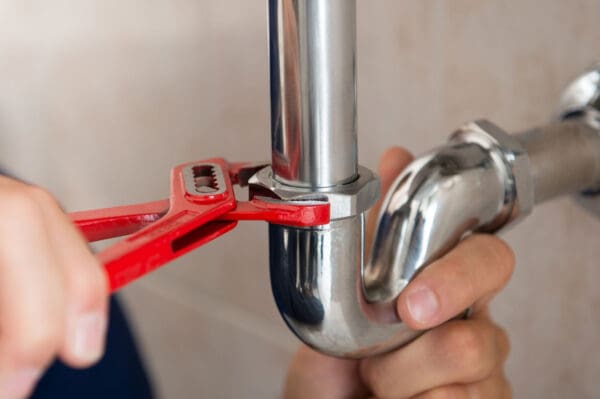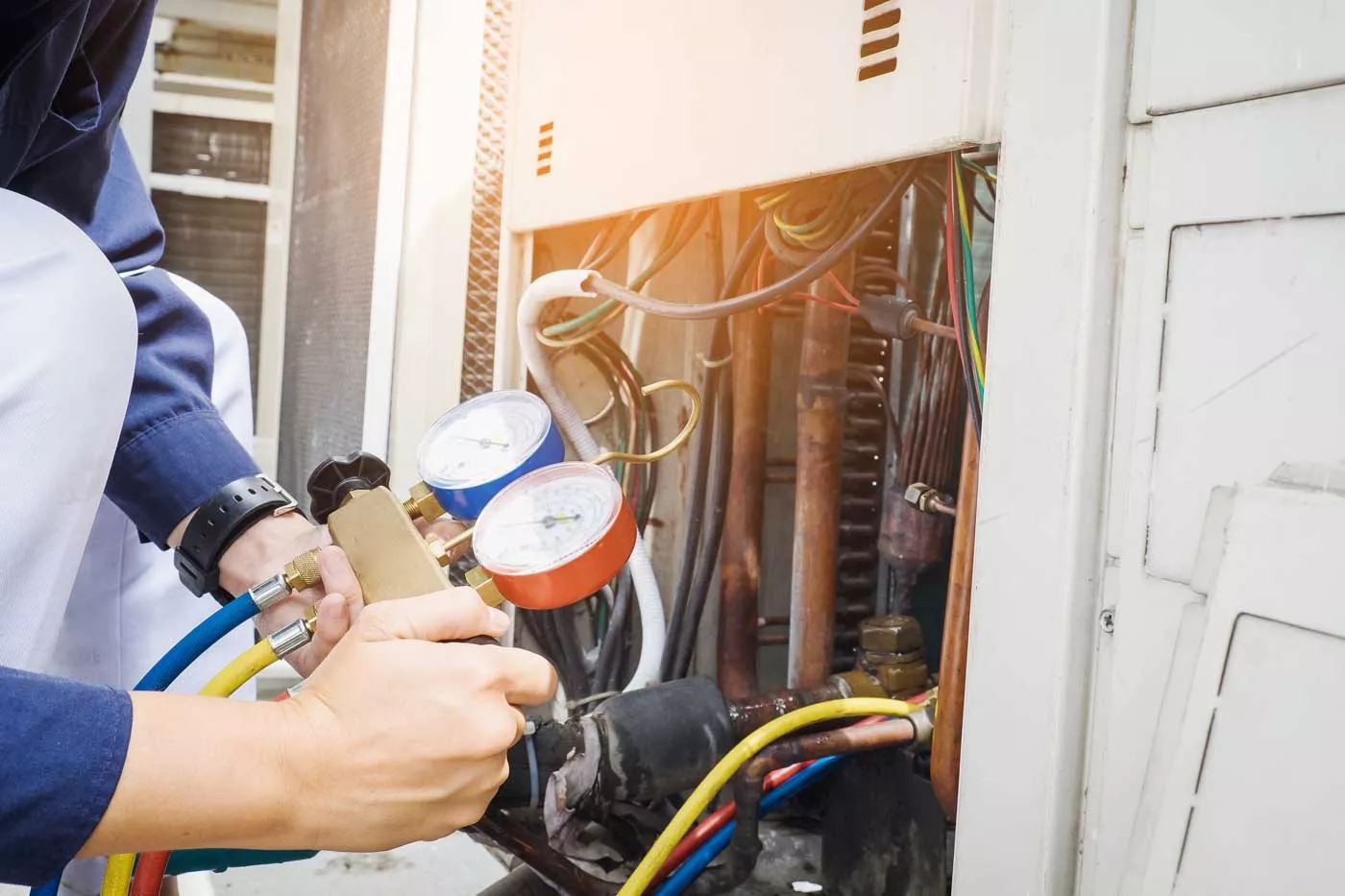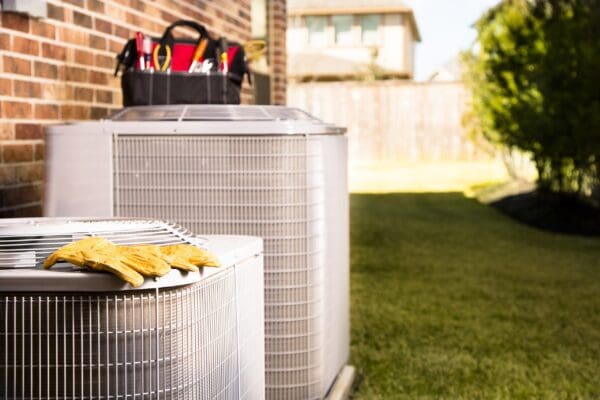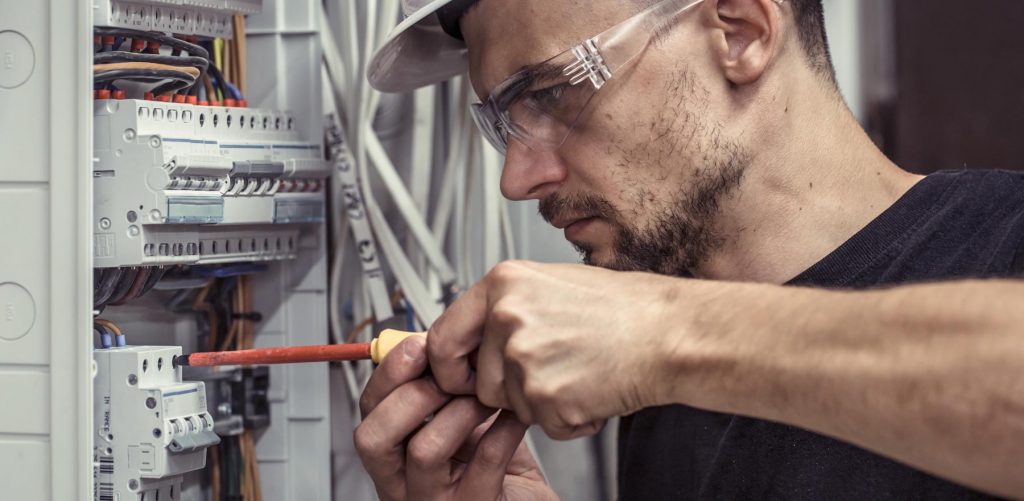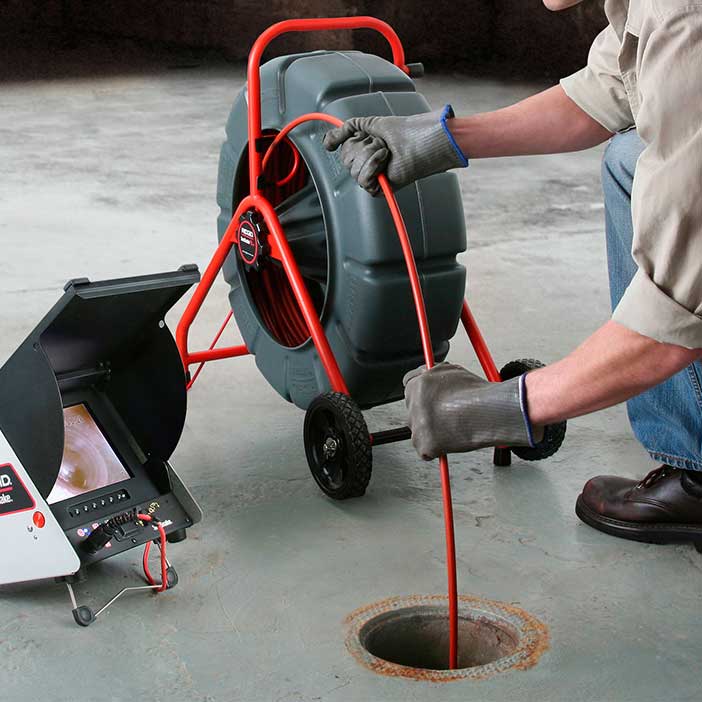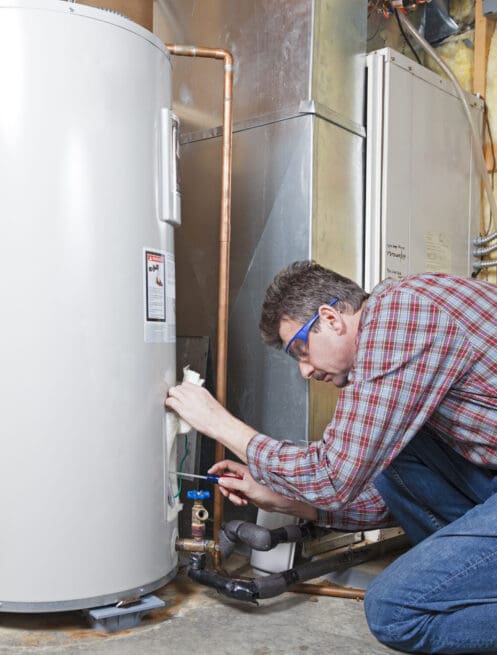
When choosing a water heater for your home, lifespan is a key factor to consider. While several variables influence the longevity of a water heater, its type plays a significant role. This article examines the typical lifespan of tank and tankless water heaters along with other elements that can impact how long yours will last.
Lifespan of Storage-Tank Water Heaters
Traditional tank water heaters typically last 10 to 15 years with electric models edging out gas units by 2 to 3 years. While both electric and gas water heaters can experience component failures like heating elements or burners, gas appliances face an additional challenge, which is a tank leak. This difference stems from the heating methods. Electric appliances have heating elements nestled within the tank itself. This minimizes heat exposure to the tank material. Conversely, gas units rely on a powerful burner positioned beneath the tank. This subjects it to constant heat.
Despite the tank’s sturdy steel construction, the constant heat from the gas burner can take its toll over time. This risk is amplified by sediment buildup. Minerals in the water settle at the tank’s bottom, and these act like heat traps. These hot spots accelerate the weakening and degradation of the tank material. Regular flushing (at least annually) removes sediment and helps prevent these leaks, which is a common issue in neglected gas units.
Lifespan of Tankless Water Heaters
Tankless water heaters are a growing trend due to their extended lifespan, as they typically last 20 to 25 years. However, with tankless models, gas units tend to outlast their electric counterparts by a few years. This advantage stems from how they heat water. Gas units heat water rapidly, which minimizes their operational time. Electric units, on the other hand, require more time to reach desired temperatures. This leads to longer cycles and potentially more wear over time.
Tankless water heaters boast a longer lifespan due to their on-demand operation. Unlike tank units that constantly maintain a heated reservoir, tankless models only activate when hot water is needed. Even with insulation, tank water heaters experience standby heat loss. This means they cycle on and off throughout the day, even when no hot water is being used. This accumulates runtime hours. These additional operational hours contribute to the increased wear and tear that shortens the lifespan of a tank water heater.
Corrosion, a major culprit behind tank failures, is less of a concern with tankless water heaters. Traditional tank systems constantly store heated water, and this allows minerals to settle and accelerate corrosion over time. In contrast, tankless models only heat water on demand. This minimizes exposure to minerals and reduces the risk of rust and leaks.
Why Maintenance Matters to the Lifespan of a Water Heater
Proper maintenance extends the lifespan of any water heater. For tank models, regular flushing and anode rod checks are vital. This is because sediment buildup in the tank hinders performance. As the water heater struggles to maintain temperature, it cycles more frequently, and this increases wear and tear. Corrosion can also shorten longevity and lead to premature appliance replacement, and this is what the anode rod helps prevent.
When a plumber flushes out your water heater tank, they will turn off the water supply to your heater and shut off the gas or electricity (depending on your model). Then, they attach a hose to a spigot at the bottom of the tank. This is like opening a little drain valve. Then, they open another valve near the top of the tank to let air in. With both valves open, the water in the tank starts flowing out the hose. Once most of the water is drained, the plumber might flush some clean water through the tank to loosen any sediment stuck at the bottom. Think of it like rinsing out a dirty cup. When the water runs clear, they close the valves and remove the hose. Now, with the tank empty, they can check for any problems inside. Once everything looks good, they refill the tank with fresh water and turn the power or gas back on.
Annual anode rod inspections prevent tank corrosion. These rods attract corrosive minerals in the water that would otherwise eat away at the tank itself. The magnesium coating of this rod depletes over time, so replacements are typically needed every 3-5 years or when more than half the coating is gone. Neglecting this maintenance can accelerate tank corrosion and shorten the lifespan of your water heater.
Aside from flushing out your tank and checking the anode rod, plumbers will use specialized tools to assess the overall health of your water heater, and this includes the internal components, electrical wiring and gas connections (if applicable). This thorough examination can identify potential problems early on to save you from unexpected breakdowns and premature system replacements.
For gas water heaters, a critical aspect of maintenance is ensuring optimal combustion. A licensed and experienced plumber will inspect the burner assembly and clean any soot or debris buildup that can hinder proper gas flow and reduce heating efficiency. They’ll also adjust the air-to-fuel ratio for a cleaner burn to minimize energy waste and emissions.
The pressure relief valve is a critical safety feature that protects your water heater from dangerous pressure buildup. During a professional maintenance visit, the plumber will test the valve by lifting the lever and checking for proper operation. If the valve leaks continuously, sticks, or shows signs of corrosion, they’ll replace it with a new one to ensure continued safety.
For electric water heaters, a professional will meticulously inspect the electrical components, and this includes the heating elements, wiring and thermostat. They’ll look for signs of wear and tear, loose connections or potential shorts that could lead to malfunctions or safety hazards.
During your inspection, the plumber can also fine-tune your water heater for optimal performance. They may suggest adjusting the thermostat to a more energy-efficient setting or recommend adding insulation to the tank or pipes for better heat retention. These optimizations can contribute to lower energy bills and extend the lifespan of your water heater.
While tankless water heaters have significantly lower maintenance requirements, annual inspections and cleaning are still critical. The primary task involves descaling the unit to remove mineral buildup on the heat exchanger. Unchecked deposits can hinder water heating efficiency and force the appliance to work longer to reach desired temperatures. This not only reduces lifespan but can also lead to costly heat exchanger replacements.
Why It’s Important to Choose a Reputable Brand
Consider brand reputation and warranty length when choosing a water heater. While price is a factor, investing in a well-regarded brand that offers a longer warranty (typically 10-15 years for high-quality appliances) can provide peace of mind and potentially extend the lifespan of your water heater. Budget-friendly options might come with shorter warranties (around 8 years), and their overall durability may vary.
Why Choose Us?
Metuchen residents, maintain a steady supply of hot water with the water heater expertise of our staff at First Choice Plumbing, Heating, Air Conditioning & Electrical. For over 20 years, our skilled plumbers have provided comprehensive water heater services, from repairs and maintenance to installations for all brands of tank and tankless models. [Company name] is your one-stop shop for all your plumbing needs, including installation, repair and maintenance. Don’t let water woes disrupt your comfort. Contact us today for top-notch service.

